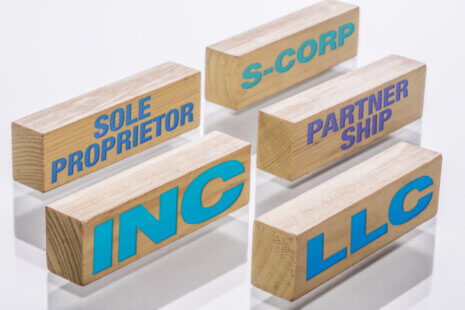A sole proprietorship and a limited liability company (LLC) are two different business structures with distinct characteristics…
- Sole Proprietorship –
- A sole proprietorship is the simplest form of business structure and is owned and operated by one individual.
- The owner and the business are considered the same entity for tax and legal purposes. The owner reports business income and losses on their personal tax return using Schedule C.
- There is no legal separation between the owner’s personal assets and the business’s liabilities, meaning the owner is personally responsible for all debts and obligations of the business.
- Sole proprietorships are easy to set up and have minimal regulatory requirements. They are suitable for small businesses with low risk and minimal complexity.
- Limited Liability Company (LLC) –
- An LLC is a hybrid business structure that combines the simplicity and flexibility of a partnership or sole proprietorship with the limited liability protection of a corporation.
- LLC owners are called members, and an LLC can have one or more members. Members’ liability is limited to their investment in the company, protecting their personal assets from business debts and liabilities.
- LLCs offer pass-through taxation, meaning business profits and losses are passed through to the members’ personal tax returns. Alternatively, an LLC can elect to be taxed as a corporation.
- LLCs offer more flexibility in management structure, ownership, and profit distribution compared to corporations. They are suitable for businesses of various sizes and industries, offering a balance of liability protection, tax flexibility, and operational simplicity.
A sole proprietorship is owned and operated by one individual with no legal distinction between the owner and the business, while an LLC provides limited liability protection to its owners while offering flexibility in management and taxation. Choosing between a sole proprietorship and an LLC depends on factors such as the nature of the business, risk level, tax considerations, and long-term goals. Consulting with legal and financial professionals can help business owners make informed decisions about the most suitable business structure for their needs.




